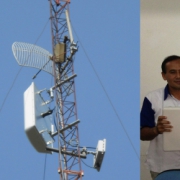ICT Training for Guyanese Sugar Workers…
Sugar has been the mainstay of Guyana’s economy for over two centuries. But the sector has been contracting since the abolition of the 1975 Lomé Convention, a special arrangement under which the South American country’s famed Demarara sugar was allowed duty-free access into the lucrative European market.
The changing global trade environment forced many neighboring Caribbean countries, including Trinidad and Barbados, to shutter their sugar industry. Guyana, on the other hand, is holding firm. The government increased investments in the ailing sector, safeguarding the economy and livelihoods. Sugar is the largest single employer and contributor to the economy. So important is the sector to the country that the largest sugar producer, Guyana Sugar Corporation Inc. (Guysuco), puts more people to work than any other entity. Guysuco is also the country’s main source of foreign exchange, bringing in revenue that accounts for as much as 13% of GDP.
An economy so dependent on an industry prone to speculation, with a productive capacity outranked by other producers and alternatives, begs the question: How can this highly indebted poor country, with a per capita GDP hovering below US$1, 500 revitalize this crucial economic activity?
The Caribbean Farmers Network (CAFAN) points to Information Communication Technologies (ICTs) as a crucial set of tools in a mix of solutions. A view I share, as ICT is crucial for economic development. According to the World Bank, an increase of 10% in mobile phone penetration results in a 0.8% expansion in economic growth. The potential benefits of ICT expansion, especially to rural areas where farming is a mainstay, is wide-ranging. Farmers, irrespective of their crop specialty, are exposed to vital new information services that improves/enables a culture of enterprise.
Although Guyana is a slow starter in the ICT space, the government’s commitment to develop and promote ICT countrywide is strong. Earlier this year, Agriculture Minister Robert Persaud commissioned the second of eight ICT centers for the benefit of sugar workers and their families. Far too often states consider ICT expansion solely a matter for schools, ignoring the wider society and key aspects of the economy. Improving the ICT skill base among Guyanese sugar workers will better prepare them for planned improvements in sugar facilities, such as the new Skeldon Factory.









































